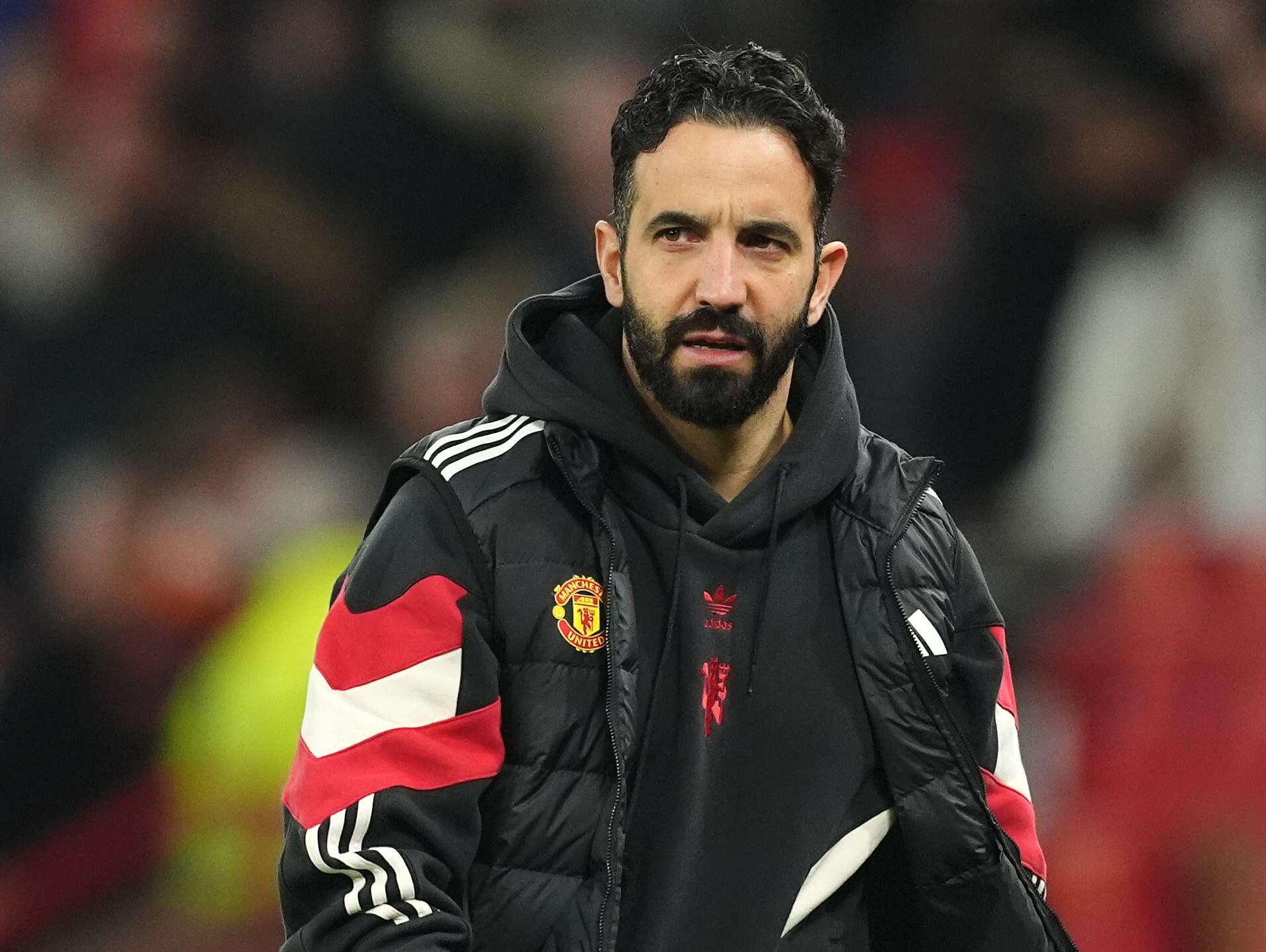The 50 Best Football Books Ever: 20-11
Ten more of the finest football books ever. May contain nuts
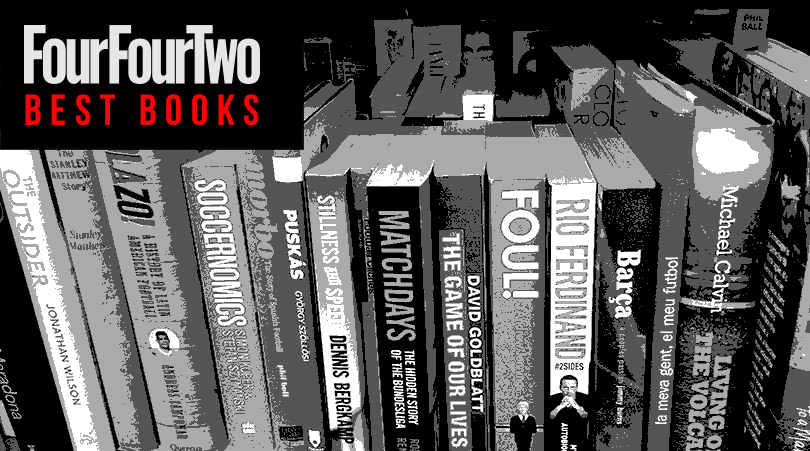
There are too many football books for anyone to plough through. Here, then, is FourFourTwo's recommended reading list. As we move into the top 20, we glide from Ginsters pasties to spatial awareness via architecture and insanity. It's quite the ride.
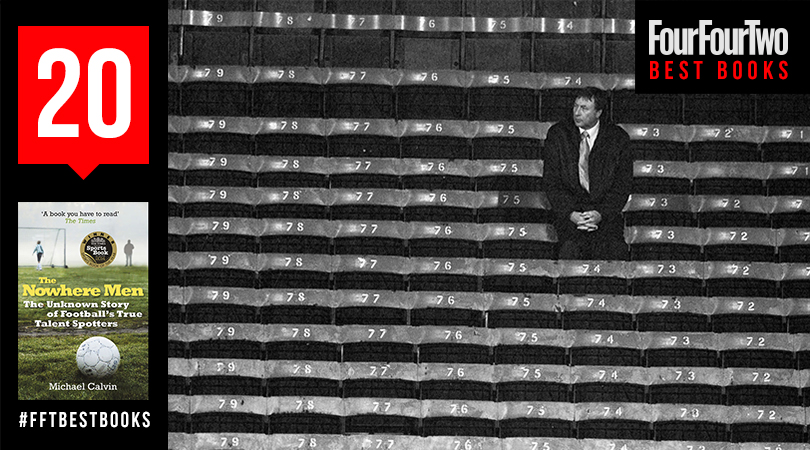
20. The Nowhere Men
The Unknown Story Of Football’s True Talent Spotters – Michael Calvin, 2013
On the surface, scouting may seem one of football’s more glamorous roles. There’s little not to love about the idea of getting paid to watch footballers for a living, always with the dangling carrot of unearthing that Next Big Thing.
That’s the dream, anyway: but, as usual, reality bites hard. Scouting jobs – the few that are available, anyway – are rarely so mystical. With a high-profile role comes high-level pressure – just ask former Tottenham and Liverpool director of football Damien Comolli, as Calvin does – and, like the managers these scouts ultimately work for, job security is predictably woeful.
Think, then, of those clinging on to the lower rungs of English football; those wiping Ginsters pasty grease off the steering wheel as they chug up the M6 for a 200-mile round trip on a Tuesday night – often merely for their petrol money, sometimes not even that. And yet for some it’s the only way of staying in touch with the game they love, avoiding the scrapheap and keeping the dream alive. Why do they do it? Calvin gets the answers from those at the coalface. Joe Brewin
–––––––––––––––––––––
Get FourFourTwo Newsletter
The best features, fun and footballing quizzes, straight to your inbox every week.
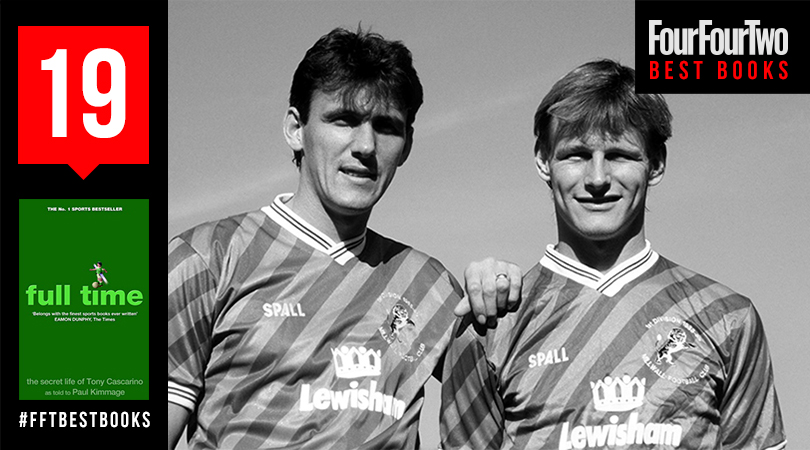
19. Full Time
The Secret Life of Tony Cascarino – as told to Paul Kimmage, 2000
Initially, it seemed Paul Kimmage would struggle to find a publisher for Full Time: “I’d spent a lot of time with Tony and had already got four chapters done before Simon and Schuster agreed to publish it,” he explains. Famously, one publisher said: “Tony Cascarino? He’s not exactly David Beckham, is he?”
“I could see what they meant,” confesses Kimmage. “Tony hadn’t played in England for a few years. But I always had the gut feeling that the book would be successful because Tony was prepared to be totally honest, which is the key to a project like this. And having been a professional cyclist for four years, I could identify with his fears as his football career drew to a close, and real life began.”
Full Time works on two levels. On the one hand, there are the testosterone-fuelled stories of dressing-room banter from his time at Gillingham, Millwall, Villa, Celtic, Chelsea and Marseille, numerous references to Jack Charlton’s potty mouth, and Glenn Hoddle’s suspect humour. But it also transcends football issues. Cascarino’s troubled relationship with his father and his painful separation from his wife and sons are themes which run throughout the story.
Then there is the doubting inner voice – “Come off it Cas, you won’t f**king score. You shot it years ago” – which plagues him each time he bears down on goal. “Tony didn’t need to confess to that,” says Kimmage. “But it’s about trust between author and subject. The writer can only push the buttons, the player is the one who must unburden themselves.”
Since its publication in 2000, Cascarino has adapted well to “real life” and enjoys a fulfilling media career. “But for every Cascarino,” explains Kimmage, “there are two players who can’t adapt at all. The money makes little difference at all.” Gazza would doubtless concur. Jon Spurling
–––––––––––––––––––––
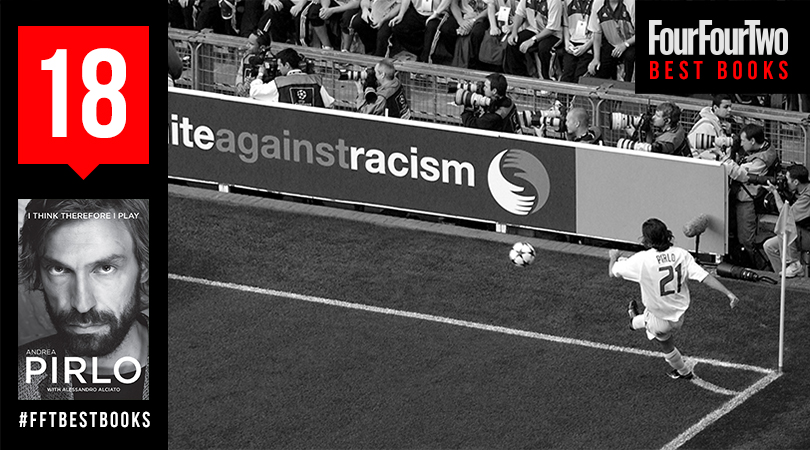
18. I Think Therefore I Play
Andrea Pirlo, 2014
The biggest criticism of even the best double albums is that, while their scope and admirable boundary pushing are to be applauded, there’s usually a genuinely great 45-minute record lost in the overblown attempts at artistic reinvention. From cradle to grave, the footballer autobiography can suffer a similar fate, overly long to the tune of 250 pages.
Former AC Milan and Juventus midfielder Andrea Pirlo’s tome I Think Therefore I Play (excuse the title’s irredeemably rubbish Descartes pretentions) is very much the Beatles’ Revolver to everyone else’s White Album – short, sharp, but packed to bursting with everything you want. Clocking in at only 150 pages, you could read it in the time it takes Pirlo to misplace two passes.
From transfers that never happened – including Pirlo nearly joining Barcelona and a fascinating description of Pep Guardiola’s office – to playing PlayStation hours before winning the World Cup, the book is a fascinating, non-linear route into the mind of football’s greatest wine-loving luxury.
True, there are points where he descends into pseudo-intellectual self-parody – like describing the warm-up as “nothing but masturbation for conditioning coaches” – but I Think Therefore I Play is the perfect distillation of what a football autobiography should be. All killer, no filler. Andy Murray
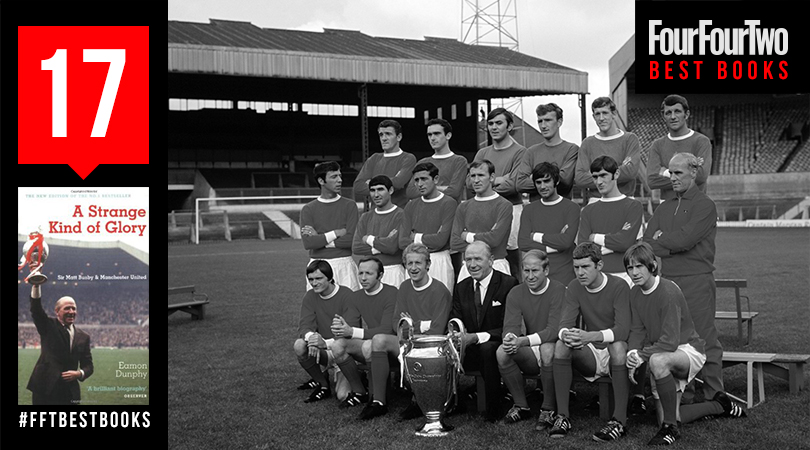
17. A Strange Kind Of Glory
Sir Matt Busby & Manchester United – Eamon Dunphy, 1991
Just the title reveals that this biography of Sir Matt Busby is no ordinary football book. “I called it A Strange Kind of Glory because that’s what it was,” explains Dunphy. “Here is a man who created all this legendary magnificence, the first modern football manager, who made Manchester United into more than just an ordinary club and yet was ultimately powerless, ending up in a semi-detached house in Chorlton.”
Dunphy was inspired by admiration for Busby and by his own service at United as youth and reserve-team player from 1960 to 1965. He knew that the real story of how one man conceptualised much of modern football had never been properly told and, financed by the profit from his authorised U2 biography Unforgettable Fire, spent months in Manchester and Scotland researching his biography.
“Busby was a great man,” he says. “Even great players – like Bobby Charlton and Denis Law – were in awe of him and professional footballers don’t do awe. He was the first manager to lay down how a club should be run, how players should behave, how the game should be played.
"And he had vision – he took United into Europe, advocated floodlit football and was one of the first managers to take a risk on young players, throwing youngsters like George Best into the team.” But he was, Dunphy concedes, “ruthless beneath the charm – when Fulham paid Johnny Haynes £100 a week in 1961, he gave stars like Bobby Charlton a fiver so they were on £25 a week.”
The book traces the corrupt and corrupting rise of professional football to put Busby into context. Dunphy makes you feel as if you are inside the club: with Busby and Jimmy Murphy on the training ground; watching the Busby Babes and the 1968 European Cup-winning side emerge; and eavesdropping as players bicker and, in the early 1960s, wonder if Busby has lost it. In its own way, this book – one of the best biographies of a football manager ever written – is as much of an achievement as winning the European Cup. Paul Simpson
–––––––––––––––––––––
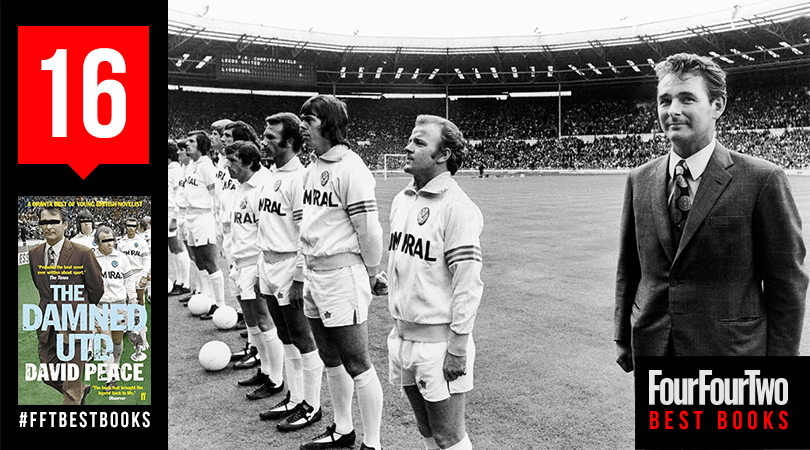
16. The Damned Utd
David Peace, 2006
Yorkshire lad David Peace left the White Rose county in 1991 but it has never left him. He rose to literary prominence with his Red Riding Quartet, novels about police corruption at the time of the Yorkshire Ripper, while GB84 was a “fiction based on fact” set during the Miners’ Strike. Then he turned his mind to Elland Road.
Peace described The Damned Utd as an “occult history of Leeds United”, but it’s nothing of the sort. It’s a brutally powerful first-person stream-of-consciousness based around Brian Clough’s 44-day stint at the club he hated, attempting to replace the manager he despised, Don Revie.
Peace maintains a taut rhythm by alternating italicised flashbacks to Clough’s stressful but successful rise to the top of management (and rancorous rivalry with Revie) with day-by-day descriptions of the six weeks at Leeds, all in the present tense (and boy, is it tense). It’s not an accurate history – Johnny Giles sued and won, with certain sections removed from further print runs – but it’s acutely moving, a terrifying glimpse into the mind of a man going mad. Gary Parkinson
–––––––––––––––––––––
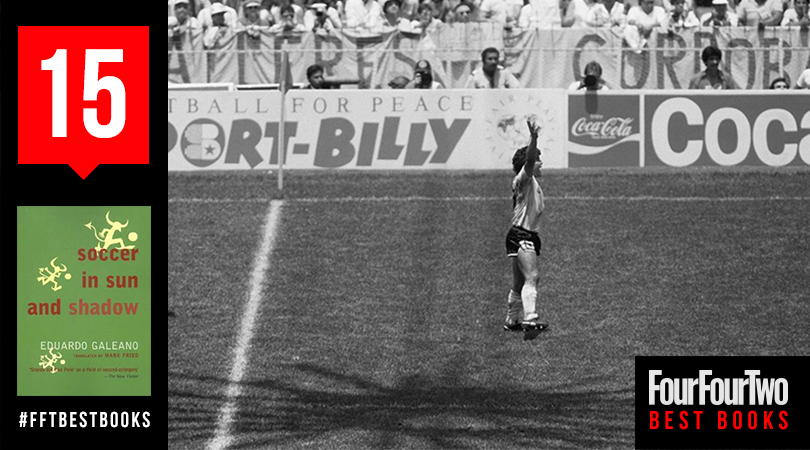
15. Football In Sun And Shadow
Eduardo Galeano, 1997
American sportswriter George Plimpton said the smaller the ball, the greater the literature. He hadn’t read this remarkable, poetic, episodic history by a left-wing Uruguayan writer who once asked “Why is football like God? Each inspires devotion among believers and distrust among intellectuals.”
The book consists of short stories on a theme – a famous game, a spectacular goal, a great player – written in a lyrical style which could quickly grate yet somehow doesn’t. Some episodes, like the tale of Brazil’s greatest goalscorer – Artur Friedenreich, not Pele – read like something out of Gabriel Garcia Marquez’s magic realist fiction. Unlike many authors who dwell on Albert Camus’ goalkeeping for spurious intellectual credibility, Galeano gives it a twist: Camus, he insists, liked to keep goal because that way his shoes didn’t wear out so fast. Paul Simpson
–––––––––––––––––––––
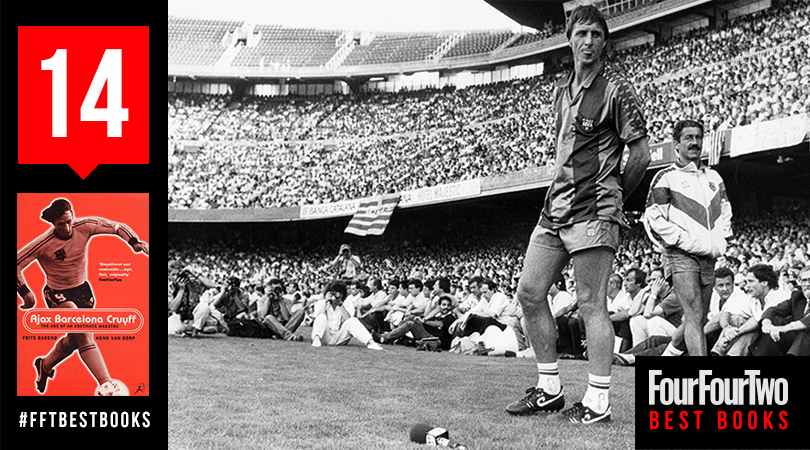
14. Ajax Barcelona Cruyff
The ABC Of An Obstinate Maestro – Frits Barend & Henk Van Dorp, 1999
Cruyff embodies all that is quirky and captivating about Dutch football. ABC pulls together articles and interviews which the authors, respected Dutch journalists, conducted with Cruyff over 35 years. His obstinacy (“If I’d wanted you to understand I’d have explained it better”) and aloofness (Interviewer: “I don’t understand a word”; Cruyff: “Yes, but I’m only suitable for the people at the top. For the people who really understand these things”) is apparent throughout.
But David Winner, who translated ABC into English, notes: “It’s a bit of a misnomer to think that all Dutch footballers are like Cruyff. He’s deliberately elliptical in interviews, and has this habit of referring to himself as ‘you’. He seeks to be incomprehensible, it seems.” Cruyff argues: “It’s the way I talk, so why not put it in the book?”. Too Dutch for the Dutch? The mind boggles. Jon Spurling
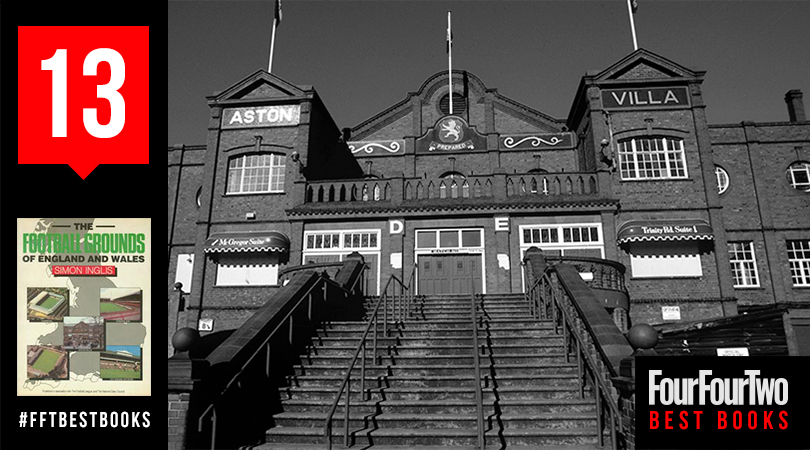
13. The Football Grounds of England and Wales
Simon Inglis, 1983
Simon Inglis is football’s answer to Nikolaus Pevsner: the man who single-handedly made us appreciate our extraordinarily rich sporting architectural heritage.
As an architectural history student in the 1970s, Inglis spent weekends biking around the cities of Britain, checking out cathedrals and football grounds, an eccentric obsession triggered by his boyhood love of Aston Villa’s old Trinity Road stand. There was plenty to read on religious buildings, but nothing on cathedrals of football.
Years later, as a freelance journalist, he decided to follow his passion and chronicle the history and design of every one of Britain’s 92 league grounds. In snobbish architectural circles, he may as well have written Road Haulage Depots of Britain.
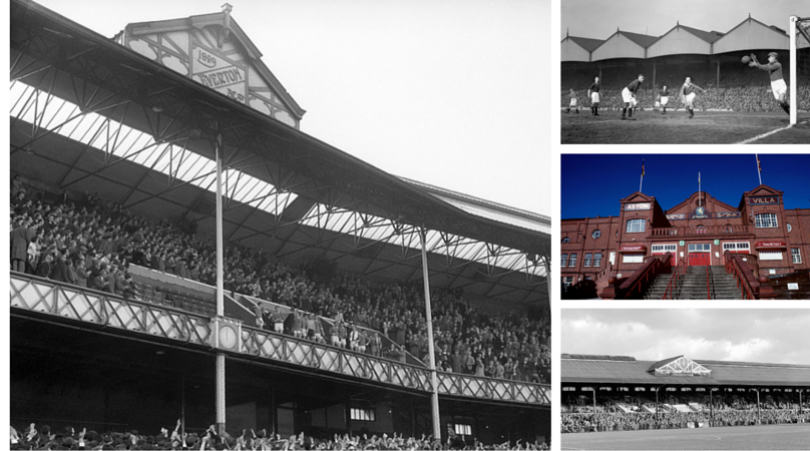
“People forget how unfashionable and unglamorous football was back then. When I told architectural people what I was doing they’d say ‘How quaint’,” explains Inglis. Some of the people running the game were even worse. “Football was an industry run by people who had no idea what it was. They knew very little. It never even occurred to them that a football ground could be important or culturally valuable.”
At best, Inglis assumed, The Football Grounds of England and Wales work would moulder on a few library shelves. Instead, when it appeared in 1983, it struck a resounding chord. “I got long emotional letters from football fans pouring their hearts out about their affection for their home ground and how important it was in their lives, how they felt they were no longer alone.”
After the 1985 Bradford fire disaster, he expected the real experts on stadium design to stand up and be counted – and then realised he was the only one around, a position he has since cemented with two decades of advice to government bodies on the subject and numerous books including the splendid Engineering Archie, a biography of prolific stadium designer Archibald Leitch.
Inglis also turned out to be something of a footballing Roman Vishniac, documenting a world on the eve of its destruction. Within a decade, the Hillsborough disaster and the Taylor Report would end the culture of the terraces. “My one regret is that I didn’t take more photographs,” he says. “But at the time I wasn’t sure many people would be interested.” David Winner
READ Inglis on stadium history and Archibald Leitch
–––––––––––––––––––––
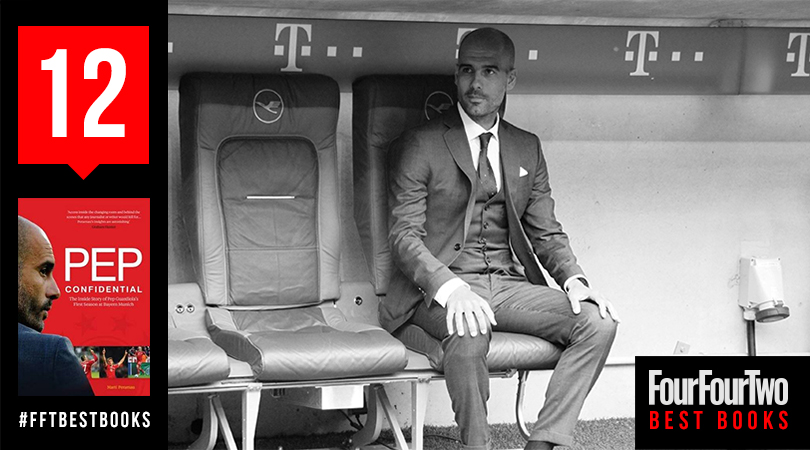
12. Pep Confidential
Marti Perarnau, 2014
Manchester City manager Pep Guardiola famously doesn’t give one-on-one interviews. At Barcelona, he upset much of the press corps, many of whom had been long-term friends, for never breaking that one golden rule.
So, how do you write a book about the most highly respected coach in the world’s attempts to reinvent a club in his first season as manager, without actually talking to him? You do what Marti Perarnau did and study everything from afar for 12 months at Bayern Munich.
The pair first met while Perarnau, an Olympic high jumper-turned-journalist, was writing a book on La Masia. Guardiola agreed to be interviewed, but only if Perarnau recorded nothing and only took notes after their conversation. For Pep Confidential, the author did speak more to Guardiola but also to his coaching staff and those closest to him to find out what makes football’s brightest mind tick.
Crucially, and most interestingly, Perarnau gets Guardiola to distance himself from the philosophy with which he is most associated, tiki-taka. “It’s a load of sh*t,” says Pep. “A made-up term.” And Perarnau explains why, through the training sessions he witnesses.
A genuinely fascinating insight into the innermost machinations of the Guardiola psyche and how he sets up his teams. Must-read. Andy Murray
–––––––––––––––––––––
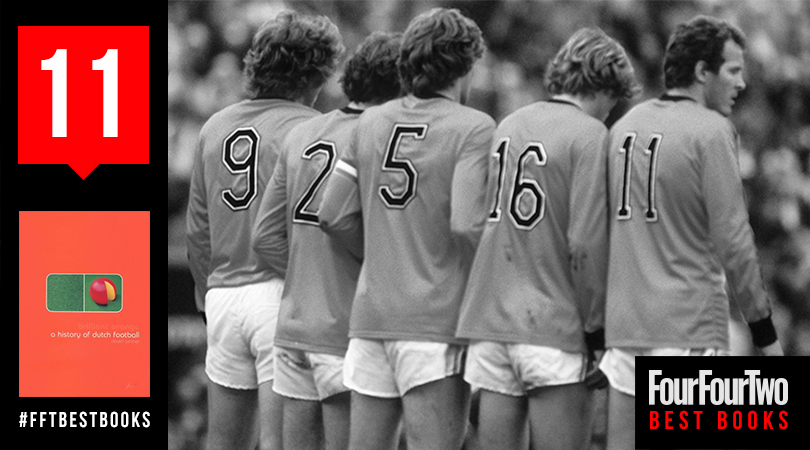
11. Brilliant Orange
The Neurotic Genius Of Dutch Football – David Winner, 2000
“I wanted to be provocative. I wanted it to be quirky and unusual and to ensure it looked at football in a different way,” explains Brilliant Orange’s cover designer Will Webb.
This book, which takes an idiosyncratic look at the enigma that is Dutch football, leapt off the shelves by virtue of the ball of Edam and Astroturf on the front framed by, well, brilliant orange. “Like a football, but not quite. Like grass, but not quite. David’s book proves that Dutch football is rather different; the cover is in keeping with the content,” adds Webb.
Winner interviews quirky former stars like Rep and Rensenbrink, but also offers a unique insight into the psyche of the Dutch, and goes some way to explaining why the team underachieves in big matches. Winner confesses to being “fascinated by the correlation between football and space, and football and architecture”. Not your average football book. Not your average football team. Jon Spurling
Next up: The 10 best football books of all time
Gary Parkinson is a freelance writer, editor, trainer, muso, singer, actor and coach. He spent 14 years at FourFourTwo as the Global Digital Editor and continues to regularly contribute to the magazine and website, including major features on Euro 96, Subbuteo, Robert Maxwell and the inside story of Liverpool's 1990 title win. He is also a Bolton Wanderers fan.
